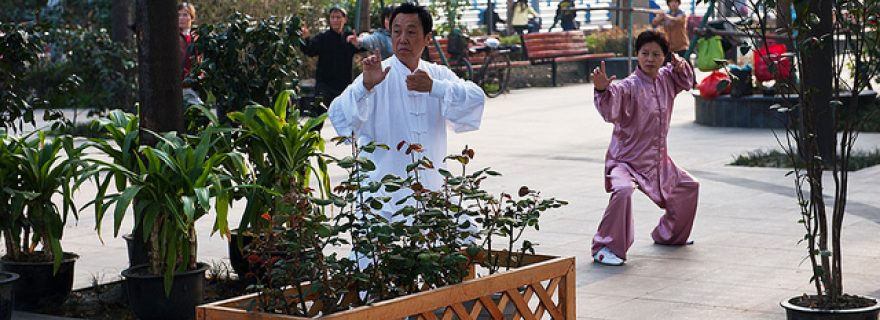The beneficial effects of Tai Chi
Anyone visiting the Far East might see them, slowly and elegantly moving, on the grass or between the trees, most of them elderly: people practicing Tai Chi Chuan.
Originally an ancient Chinese martial art, Tai Chi is nowadays not so much practiced for kicking butt, as it is for improving one’s health. People getting on in age flock to it, not only in East Asia, but also in North America. It surely seems to be working for them.
Then again, just judging by individual or even societal perception: so did a lot of other stuff. Heck, for much of written history until the start of the twentieth century, opiates were massively used panacea, prescribed among other things for curing "old age". I bet the Victorian lady sitting in her boudoir, sipping from her laudanum, thought that was working just fine and dandy.
But in this regard science seems to be catching up. Not another myth busted, another folk wisdom debunked. At first found to be improving physical traits and health, such as lower body strength, attenuate symptoms of clinical conditions (e.g. Parkinson), research moved into psychology by showing lowered anxiety and stress levels and then cognitive improvements, such as in prefrontal functioning.
Maybe not surprisingly so, if you regard Tai Chi as meditative movement and looking at the research on the cognitive enhancing effects of both physical exercise and meditation or mindfulness. But also looking at it from a more theoretical perspective such as embodied cognition or ideomotor theory. Reflecting on the intricate dance between sensation and the external world, cognition and action, the bidirectional influences present between them, one can imagine the training of one affecting the other. Or to use the words of Ludwig Wittgenstein somewhat misguidedly: ‘meaning is use’.
There is now an increasing awareness in cognitive science that cognitive control plays an important role in the motor domain. In functioning previously thought of as purely “motor”, such as balance , gait and by proxy the risk of falling. This also fits the story of Tai Chi.
However, the mechanisms by which all the specific and non-specific effects of Tai Chi are mediated and the way brain, body and environment are intertwined remain mostly elusive thus far. We are hoping to look to into that.. and try not to kick too much butt along the way.
Master says: ‘go forth, practice and thou shalt find enlightenment of mind and body!’ Because as Zen Buddhism practice states: in order to understand Zen, you need to do Zen.



0 Comments